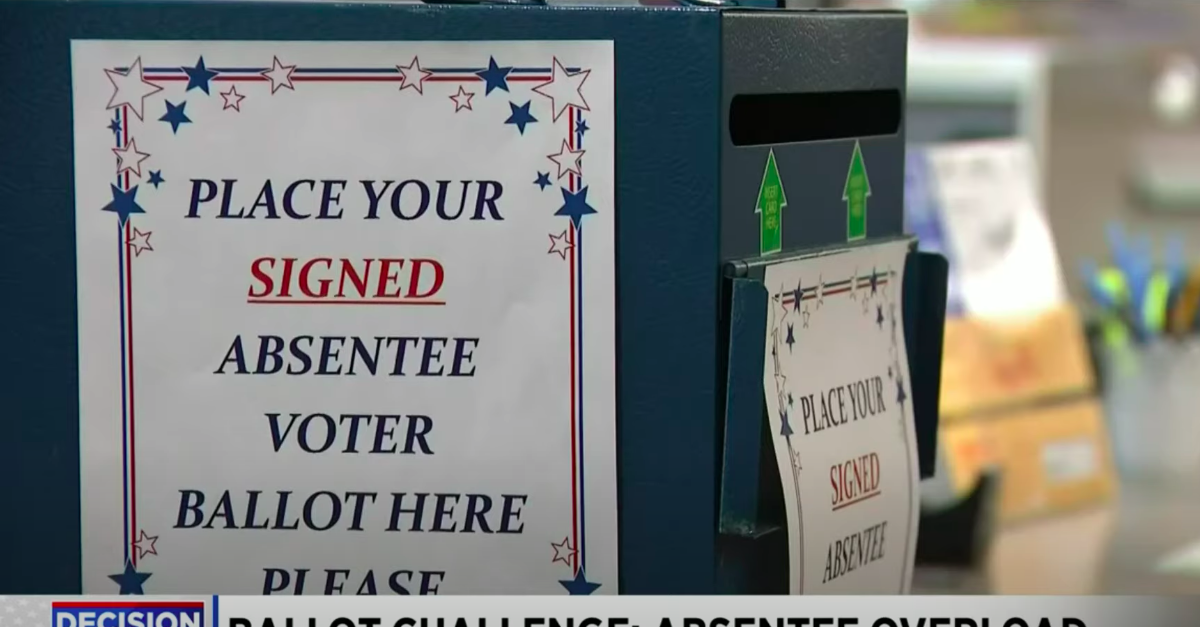
The Texas Democratic Party filed court documents asking the U.S. Supreme Court to weigh in on whether or not state government officials are required to expand access to mail-in ballots to all eligible voters. In a pair of filings submitted Tuesday, Texas Democrats are seeking to have the high court vacate an earlier decision from a federal appellate court blocking universal access to mail-in ballots and asking the court to hear arguments that the state’s current restrictions on mail voting access are unconstitutional.
Under current Texas law, only persons who are out of state, are over age 65, or have disabilities are allowed to cast their ballot via mail.
After a district judge issued a preliminary injunction allowing all Texans to vote by mail if they fear contracting the novel coronavirus, a three-judge panel on the U.S. Court of Appeals for the 5th Circuit reversed the ruling. The appeals court reasoned that the parameters for voting during a pandemic were up to state governments and not within the purview of the court’s authority.
In the filings, the Texas Democratic Party alleged that the state’s current restrictions on voting unlawfully discriminate on the basis of age in violation of the 26th Amendment to the U.S. Constitution, which states that “[t]he right of citizens of the United States, who are eighteen years of age or older, to vote shall not be denied or abridged by the United States or by any State on account of age.”
The filing argues that the amendment should be read similar to other anti-discrimination amendments in the Constitution.
“That text echoes the Fifteenth, Nineteenth, and Twenty-Fourth Amendments, which direct that the right to vote shall not be ‘denied or abridged’ based on race, sex, or failure to pay a poll tax,” the application stated. Furthermore:
A state would plainly violate those amendments if it offered no-excuse mail voting only to whites, only to men, or only to voters who pay a tax. It is equally plain that Texas has violated the Twenty-Sixth Amendment by offering that option only to voters over 65. The Fifth Circuit held otherwise only because it failed to take the amendment’s text seriously. And the court compounded that error by injecting into the Twenty-Sixth Amendment standards of review developed by this Court to adjudicate Fourteenth Amendment challenges to voting restrictions that do not implicate discrimination on a basis expressly forbidden by the four parallel voting amendments.
In a statement released Tuesday, the chair of the Texas Democratic Party, Gilberto Hinojosa, said that Republicans in the government are refusing to expand access to mail-in voting to suppress votes from the state’s increasingly diverse population.
“There’s no logical reason for those whose 65th birthday is the day after Election Day to have to go to the polling place in person while their 65-year-old spouse can vote a mail ballot — especially during the worst pandemic in a century,” Hinojosa said.
“Let’s make no mistake about why we’re back at the Supreme Court again. Texas Republicans are hell-bent on discriminating against and blocking Texas’ new diverse majority from casting their ballot. We have not — and never will — stand by as Republicans discriminate against hard-working Texans trying to cast their ballot.”
Read the two filings below.
TDP Garcia Cert Petition FINAL by Law&Crime on Scribd
TDP- Application to Vacate by Law&Crime on Scribd
[image via YouTube screengrab]